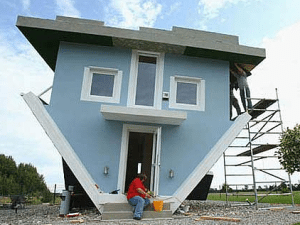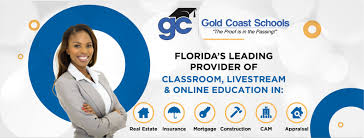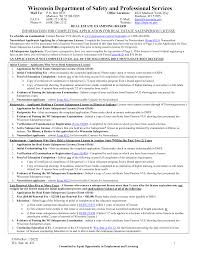
You will need to know what education is required before you can apply for a Florida real-estate license. This article will discuss how much pre-licensing education is required, what the time commitment is, and how to get the most out of the education. We will also discuss the most important courses and what prices you can expect.
Pre-licensing education
You must complete pre-licensing training before you can begin practicing real estate in Florida. Before you can apply to get a license, you must have completed at least 63 hours in pre-licensing training. Courses should cover law, principles, real-estate practice, and math. Some courses may cost as little as $100 or more. You must score 70% to be eligible for Florida license. Attorneys do NOT need to complete any pre-licensing training. They are permitted to sit for the Sales Associate exam without a prelicense.

Online or in-person pre-licensing education can be obtained for real property in Florida. Some of these courses include self-paced courses with practice exams. Others provide a variety study aids including textbooks and practice tests. No matter which program you choose, you must complete your state's prelicensing education requirements. There are several online programs that offer prelicensing education, and some of them are free.
Pre-licensing education cost
Pre-licensing education can cost anywhere from $100 to $1,000, depending on which state you are in. There are many reasons this might be, but the main reason is that real estate courses take a lot time and energy to make. Companies who create these courses must pay their staff to ensure that the content is up to date and in compliance with all state laws. While many brokerages and title firms offer continuing education classes for no cost, they are not always free. These courses are more thorough and longer than the other courses.
No matter where you live, Florida's pre-licensing education is well worth the investment. The Florida real estate exam is 100 multiple-choice questions with a passing score of 75%. There are 45 questions related to real estate law and principles. 10 questions test your mathematical ability. If you study properly, you can expect to pass with a score of 75% or higher.
Time needed to complete pre-licensing training
To obtain a Florida real-estate license, one must be 18 years old and pass a background screening. They must complete at minimum 90 hours of prelicensing education. They must be of good moral character and declare any convictions. They cannot be granted a real property license if they were convicted in a felony conviction. A fingerprint clearance is required. Once they have been approved by their Broker online, they can then continue their education.

Applicants must have at least 18 years old and a United States issued social security number. A high school diploma is required. While real estate education isn't required to become a licensed broker in Florida, having the right foundation can make it easier to learn the ropes. Florida recognizes licenses from a few states, including Nebraska, Arkansas, Georgia, Illinois, and Arkansas. If applicants have a license in Florida as a real estate agent from one of these states, they are eligible for a license. Candidates from Arkansas Georgia Illinois Connecticut must take the state exam.
FAQ
Can I get another mortgage?
Yes. However it is best to seek the advice of a professional to determine if you should apply. A second mortgage is typically used to consolidate existing debts or to fund home improvements.
What is reverse mortgage?
A reverse mortgage is a way to borrow money from your home without having to put any equity into the property. It allows you access to your home equity and allow you to live there while drawing down money. There are two types: conventional and government-insured (FHA). Conventional reverse mortgages require you to repay the loan amount plus an origination charge. FHA insurance covers the repayment.
Should I rent or own a condo?
Renting is a great option if you are only planning to live in your condo for a short time. Renting allows you to avoid paying maintenance fees and other monthly charges. However, purchasing a condo grants you ownership rights to the unit. The space can be used as you wish.
Can I buy a house in my own money?
Yes! Yes. There are programs that will allow those with small cash reserves to purchase a home. These programs include conventional mortgages, VA loans, USDA loans and government-backed loans (FHA), VA loan, USDA loans, as well as conventional loans. Visit our website for more information.
Is it possible to sell a house fast?
It may be possible to quickly sell your house if you are moving out of your current home in the next few months. However, there are some things you need to keep in mind before doing so. First, you need to find a buyer and negotiate a contract. Second, prepare your property for sale. Third, you need to advertise your property. You should also be open to accepting offers.
How much money do I need to purchase my home?
It depends on many factors such as the condition of the home and how long it has been on the marketplace. The average selling price for a home in the US is $203,000, according to Zillow.com. This
Statistics
- This means that all of your housing-related expenses each month do not exceed 43% of your monthly income. (fortunebuilders.com)
- Based on your credit scores and other financial details, your lender offers you a 3.5% interest rate on loan. (investopedia.com)
- Private mortgage insurance may be required for conventional loans when the borrower puts less than 20% down.4 FHA loans are mortgage loans issued by private lenders and backed by the federal government. (investopedia.com)
- 10 years ago, homeownership was nearly 70%. (fortunebuilders.com)
- The FHA sets its desirable debt-to-income ratio at 43%. (fortunebuilders.com)
External Links
How To
How to locate an apartment
When you move to a city, finding an apartment is the first thing that you should do. Planning and research are necessary for this process. This includes researching the neighborhood, reviewing reviews, and making phone call. While there are many options, some methods are easier than others. Before renting an apartment, it is important to consider the following.
-
It is possible to gather data offline and online when researching neighborhoods. Online resources include websites such as Yelp, Zillow, Trulia, Realtor.com, etc. Other sources of information include local newspapers, landlords, agents in real estate, friends, neighbors and social media.
-
Read reviews of the area you want to live in. Yelp and TripAdvisor review houses. Amazon and Amazon also have detailed reviews. You may also read local newspaper articles and check out your local library.
-
To get more information on the area, call people who have lived in it. Ask them what the best and worst things about the area. Ask them if they have any recommendations on good places to live.
-
You should consider the rent costs in the area you are interested. Renting somewhere less expensive is a good option if you expect to spend most of your money eating out. However, if you intend to spend a lot of money on entertainment then it might be worth considering living in a more costly location.
-
Find out information about the apartment block you would like to move into. It's size, for example. How much is it worth? Is the facility pet-friendly? What amenities does it have? Are you able to park in the vicinity? Are there any special rules that apply to tenants?